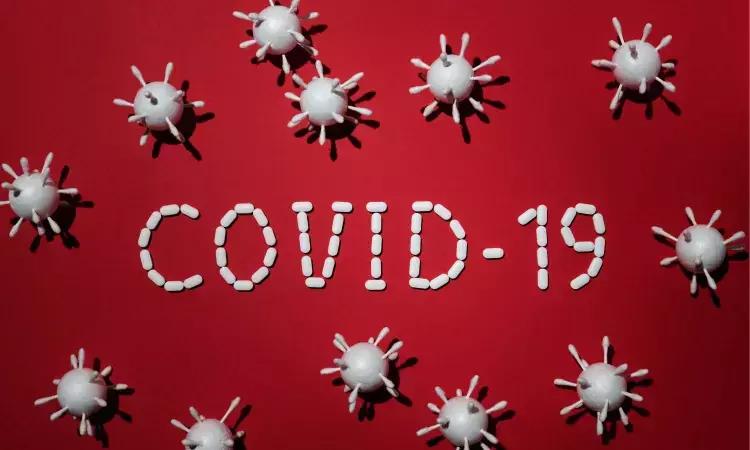
Genetic Predisposition For SLE May Protect Against Severe COVID-19 Infection
- byDoctor News Daily Team
- 18 February, 2025
- 0 Comments
- 0 Mins

Some genetic variants may put people at risk of autoimmune diseases while conferring protection against the outcome of viral infection.
David Morris and Timothy Vyse at King's College London, UK, and colleagues have found in a new study that genetic predisposition for systemic lupus erythematosus (SLE) may be protective against severe COVID-19 infection.
The study has been published in open access journal PLOS Genetics.
Scientistshave observed a correlation between the genes associated with severe COVID-19 and those with SLE. In order to locate associated genes and gain insight into the shared genetic effects, researchers compared the genetics of severe COVID-19 with those of SLE using multiple analyses, including an approach that can focus on specific areas of the genome. The authors then accessed data on genes and the structure of the genome obtained from several biomedical databases to understand the biology of the shared genetics.
The researchers found that TYK2, a gene associated with both SLE and severe COVID-19 provides protection against viral infection, but increases risk for autoimmune disease. Future studies will be needed to fully understand the genetic relationships between COVID-19 and other diseases. The study has its limitations, such as the overrepresentation of European ancestry in the datasets used to perform the analyses.
According to the authors, "Our results indicate that there are shared genetic effects between the autoimmune disease SLE and the clinical consequences of COVID-19. The locus with the most evidence of shared association (TYK2) is involved in interferon production, a process that is important in response to viral infection and known to be dysregulated in SLE patients. In seeking to uncover the mechanisms underlying these relationships it was apparent that the functional effects of the risk and protective genotypes are complex."
Dr. David Morris and Professor Timothy Vyse, who led the study, add that "this is an exciting result made possible by the large genetic studies in COVID-19 and Lupus, and opens the door to our understanding of how the biology of the immune system is calibrated to protect us against infection from viruses and other infectious agents, but at the risk of developing autoimmune disease."
Reference:
Wang Y, Guga S, Wu K, Khaw Z, Tzoumkas K, Tombleson P, et al. (2022) COVID-19 and systemic lupus erythematosus genetics: A balance between autoimmune disease risk and protection against infection. PLoS Genet 18(11): e1010253. https://doi.org/10.1371/journal.pgen.1010253
Disclaimer: This website is designed for healthcare professionals and serves solely for informational purposes.
The content provided should not be interpreted as medical advice, diagnosis, treatment recommendations, prescriptions, or endorsements of specific medical practices. It is not a replacement for professional medical consultation or the expertise of a licensed healthcare provider.
Given the ever-evolving nature of medical science, we strive to keep our information accurate and up to date. However, we do not guarantee the completeness or accuracy of the content.
If you come across any inconsistencies, please reach out to us at
admin@doctornewsdaily.com.
We do not support or endorse medical opinions, treatments, or recommendations that contradict the advice of qualified healthcare professionals.
By using this website, you agree to our
Terms of Use,
Privacy Policy, and
Advertisement Policy.
For further details, please review our
Full Disclaimer.

Recent News
Normal-Tension Glaucoma Closely Associated With Co...
- 10 October, 2022
Air Pollution Tied To Increased Risk Of Premature...
- 24 May, 2023
NEET PG 2024: NBE Opens Pre-Final Edit Window
- 30 May, 2024
NMC Mulls Over Removal Of Upper Age Cap In MBBS En...
- 30 November, 2021

Daily Newsletter
Get all the top stories from Blogs to keep track.


0 Comments
Post a comment
No comments yet. Be the first to comment!